Team GB must not fear new rivals - Darren Campbell
- Published
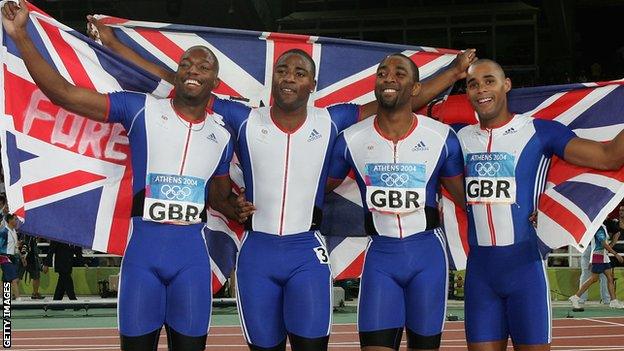
Darren Campbell (second right) won Olympic gold for Britain in the 4x100m relay in 2004
British athletes should not fear foreign-born competitors declaring for Team GB, says former European 100m champion Darren Campbell.
It was announced on Tuesday that five athletes, including sprinter Zharnel Hughes, from outside the UK had been made eligible to represent Britain.
Hurdler Lucy Hatton and world indoor 60m champion Richard Kilty have both expressed their concern.
But Campbell told BBC Radio 5 live: "Competition is healthy."
He continued: "I can understand why it would be unsettling, but if you're trying to be the best in the world then everyone needs to be beaten.
"It means the current British athletes have to be ready to go."
Highly-rated 19-year-old Hughes, a training partner of six-time Olympic champion Usain Bolt, was born on the British overseas territory of Anguilla, but has held a British passport since birth.
Campbell added: "When you hear of a sprinter, aged 19, who is labelled the new Usain Bolt, that is going to spread fear among the sprinters.
"If his potential is realised, he'll go on to run crazy times. This is going to block paths for other sprinters. You would be worried. But as I've said, your mind-set has to change."
Who are the new Brits? | |||
|---|---|---|---|
Event | Born | How do they qualify? | |
Zharnel Hughes, 19 | 100m | Anguilla | Has held British nationality since birth |
Cindy Ofili, 20 | 100m hurdles | United States | Dual nationality through her mother, along with sister and GB hurdler Tiffany Porter |
Shante Little, 22 | 400m hurdles | United States | Holds British nationality through her Colchester-born mother |
Montene Speight, 22 | 400m | United States | Holds British nationality |
Victoria Dronsfield, 24 | High jump | Sweden | Holds British nationality through her father, who was born in England |
Who has concerns?
Kettering's Hatton has a 100m hurdles qualifying time for the World Championships and Rio 2016, but Cindy Ofili, who was born in America and is now eligible for Great Britain, has that mark too.
"If you want to be GB, we girls aren't going to roll over - bring it on," Hatton told BBC Radio Northampton.
Kilty, meanwhile, tweeted a sarcastic response to the announcement, before later deleting the post. It read: "Good for fans to see home grown talent representing GB... oh wait...".
And who is all for it?
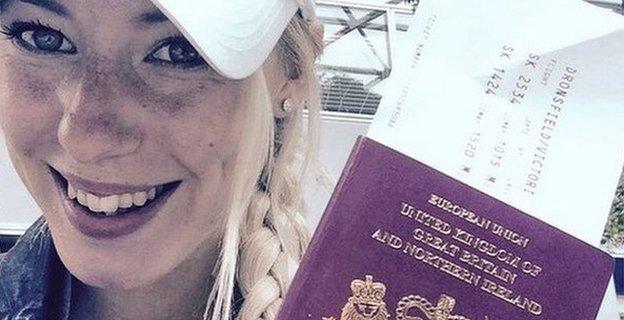
Sweden-born high-jumper Victoria Dronsfield posed with her British passport on Instagram
Briton Martyn Rooney, the reigning European champion at 400m, has written a blog in support of the new British athletes.
"Great Britain is a truly global nation, with colonies all over the world. We have many different cultures in our schools, work places and our sports teams," he said.
"Personally, I'm a supporter of athletes coming across and becoming British citizens on the condition that they contribute to British society."
And he told BBC Radio 5 live: "Around the world, if you look at other national governing bodies, the support we receive from British Athletics is world class.
"We're funded to a high level, we have a decent media outlet and we get great opportunities to race. I can understand why it is an attractive proposition to compete for Great Britain.
The term 'plastic Brits' has been labelled to those who have switched their allegiances to Britain from other countries.
"It is not the nicest of terms but you have to take everything with a pinch of salt. You have to roll with the punches," he said.
"If you come out and do your best for Great Britain that word won't be used any more. You look at Mo Farah, nobody calls him a plastic Brit because he's successful."
What do other British athletes say?
Former Olympic hurdler Angie Thorp: "People decide they want to be at an Olympic Games and that's why they change allegiance. I'd like personally to see that rostrum, with athletes wearing a medal, thinking 'I'm British and proud' but that's not happening, they're thinking 'I've got a gold medal' and that's selfish."
Heptathlete Louise Hazel: "Why is there resentment in the first place? Perhaps they don't feel as supported as they should. Perhaps the support isn't there. If there was, perhaps they wouldn't need to complain. They are going to feel home-grown talent is overlooked. They are going to feel their lottery funding is harder to achieve."
How can sportsmen and women qualify for Britain? | ||
|---|---|---|
Reason | Examples | |
Passport | If you hold a British passport, regardless of where you were born, you are eligible. | Tour de France winner Chris Froome. Born in Kenya, schooled in South Africa, with a father and grandparents all born in Britain. |
Parent born in UK | If you are born and raised overseas, but subsequently move to the UK, with a British parent, as a child. | Double Olympic champion Mo Farah - born in Somalia, moved to Britain aged eight to live with his British-born father Mukhtar |
Residency rules | In football and rugby, having an English, Scottish or Welsh parent or grandparent is enough for governing bodies, regardless of which passport the player holds. | England rugby internationals include Brad Barritt (South Africa), Manu Tuilagi (Samoa), Mako Vunipola (New Zealand) |
When is a Briton not a Briton? Read more in Tom Fordyce's blog from 2013 | ||
- Published24 June 2015
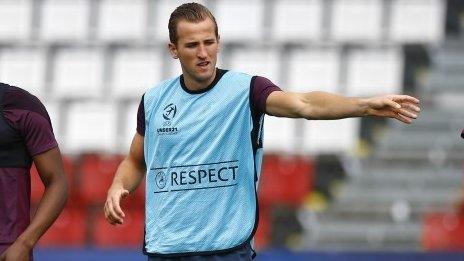
- Published23 June 2015
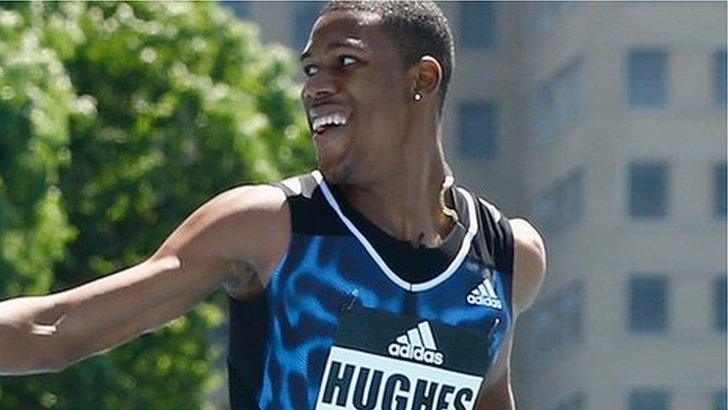
- Published17 October 2013
- Published24 June 2015
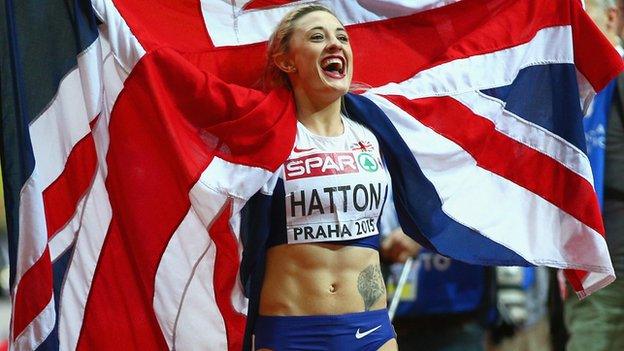
- Published23 June 2015
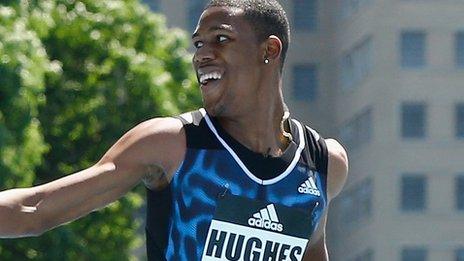
- Published24 June 2015
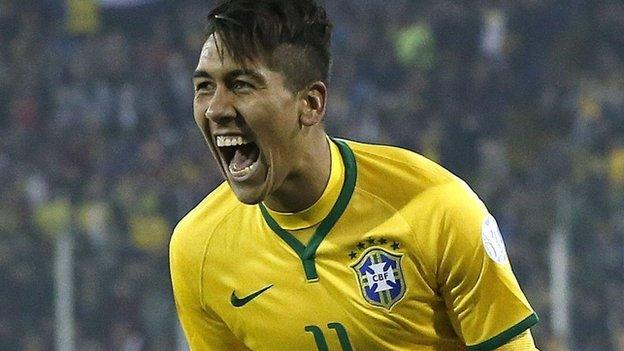
- Published10 September 2015

- Published8 February 2019
